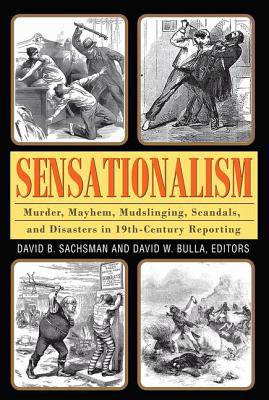
- Retrait gratuit dans votre magasin Club
- 7.000.000 titres dans notre catalogue
- Payer en toute sécurité
- Toujours un magasin près de chez vous
- Retrait gratuit dans votre magasin Club
- 7.000.0000 titres dans notre catalogue
- Payer en toute sécurité
- Toujours un magasin près de chez vous
Sensationalism
Murder, Mayhem, Mudslinging, Scandals, and Disasters in 19th-Century Reporting
David B SachsmanDescription
David B. Sachsman and David W. Bulla have gathered a colourful collection of essays exploring sensationalism in nineteenth-century newspaper reporting. The contributors analyse the role of sensationalism and tell the story of both the rise of the penny press in the 1830s and the careers of specific editors and reporters dedicated to this particular journalistic style.
Divided into four sections, the first, titled "The Many Faces of Sensationalism," provides an eloquent Defense of yellow journalism, analyses the place of sensational pictures, and provides a detailed examination of the changes in reporting over a twenty-year span. The second part, "Mudslinging, Muckraking, Scandals, and Yellow Journalism," focuses on sensationalism and the American presidency as well as why journalistic muckraking came to fruition in the Progressive Era.
The third section, "Murder, Mayhem, Stunts, Hoaxes, and Disasters," features a ground-breaking discussion of the place of religion and death in nineteenth-century newspapers. The final section explains the connection between sensationalism and hatred. This is a must-read book for any historian, journalist, or person interested in American culture.
Spécifications
Parties prenantes
- Auteur(s) :
- Editeur:
Contenu
- Nombre de pages :
- 426
- Langue:
- Anglais
- Collection :
Caractéristiques
- EAN:
- 9781412851718
- Date de parution :
- 30-08-13
- Format:
- Livre relié
- Format numérique:
- Genaaid
- Dimensions :
- 157 mm x 231 mm
- Poids :
- 725 g

Les avis
Nous publions uniquement les avis qui respectent les conditions requises. Consultez nos conditions pour les avis.






